Dr Nisreen Alwan, MBE

Associate Professor in Public Health at the University of Southampton and Honorary Consultant in Public Health at University Hospital Southampton NHS Foundation Trust.
I teach epidemiology to postgraduate students and do research in maternal and child health and health inequalities. I am the Intersectionality Champion and Intersectionality Portfolio Lead with the Athena SWAN Self Assessment Team at the Faculty of Medicine, University of Southampton. I am a woman from an ethnic minority myself and throughout my career felt the need to be mentored by senior women who share some of my characteristics. Talking to ethnic minority women staff in our medical school, this feeling was common and a need was identified, hence I initiated the idea of this scheme. You may find this article I recently published in BMJ Opinion interesting:
Let’s equalise our antiracist language
Dr Georgina Barnett
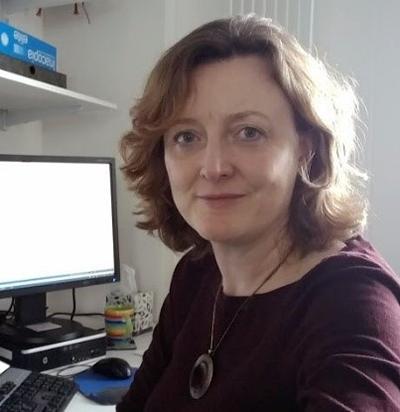
Athena SWAN Project Coordinator, University of Leicester
I work as part of a small team, coordinating our College of Life Sciences gender equality activity, which includes the Leicester Medical School and a number of departments that have clinical academic and research staff. My work has shown me that there are specific challenges at the intersection of gender and race, that impact at all levels of the academic medical career. Role models and mentors for this specific group can often be small in number within individual institutions, but I believe that by taking a national approach to intersectional mentoring, we will be able to offer support to staff and students to progress and form valuable networks.
Dr Elizabeth Benedikz
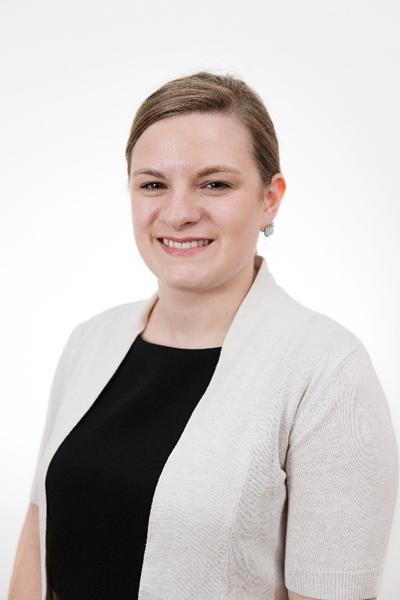
Programme Manager for the Academy of Medical Sciences’ SUSTAIN and Mentoring programmes.
I started at the Academy in December 2016 as a Programme Officer, initially working on mentoring pairing. Over three years I also worked on our Career Development events, SUSTAIN programme, Clinical Academics in Training Annual Conference, and the development and delivery of our new leadership programme FLIER, before being promoted to manager in 2020. Before working at the Academy I completed a PhD in microbiology at the University of Birmingham; switching career paths to focus on supporting researchers because that was the aspect of academia I enjoyed most.
Professor Louise Bryant
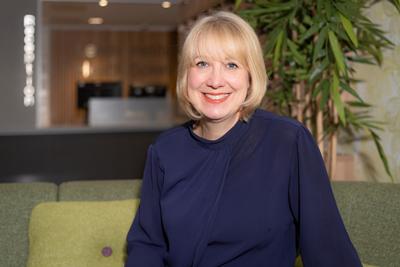
Professor in Psychological and Social Medicine, Dean for EDI at the University of Leeds, and Associate Dean for EDI in the School of Medicine.
Louise’s research focuses on antenatal screening, considering how parents make decisions about screening tests and what underlies their choices; she applies this evidence to improve screening information and staff education. She also researches how to address health inequalities experienced by people with a learning disability. Louise holds leadership roles for Public Health England in the development, implementation and evaluation of national policy and guidance on fetal anomaly screening. In 2019, she was the first Social Scientist member appointed to the UK National Screening Committee.
Louise has led Athena SWAN activities at the University of Leeds since 2012. The School of Medicine was awarded Athena SWAN Gold chartered status in 2019. Addressing intersectional issues of gender and race is a priority within the University, and one of the School’s five priority actions is to advance the careers of our female colleagues from Black, Asian and other minoritised ethnic groups. Mentoring has been identified as an important element of this advancement, and Leeds are delighted to partner with the University of Southampton in the creation and development of AIMMS Mentoring.
Professor Angharad P Davies

Professor and Honorary Consultant Medical Microbiologist at Swansea University Medical School (SUMS), and Vice-President for Learning, Royal College of Pathologists (RCPath).
Angharad is a member of the UK REF2021 Equality and Diversity Panel, and a past co-Deputy Chair of the BMA Women in Academic Medicine group. She is a member of the UK Medical Schools’ Athena SWAN network and Medical Women’s Federation representative to AoMRC Flexible Careers Committee. She has led the clinical academic working group of SUMS Athena SWAN team since 2012 and established an ethnic minority staff and student network in the medical school, in collaboration with the local NHS Health Board, and in her Royal College role is an active member of the RCPath Diversity network.
Dr Lucy Green

Associate Professor in Developmental Physiology; Head of Engagement for Faculty of Medicine, University of Southampton
Lucy’s scientific research explores the cardiovascular, metabolic and growth adaptations made by the unborn baby in response to changes in the mother’s nutrition, from before conception and throughout pregnancy. She is part of the Institute of Developmental Sciences, which works with partners across the University and Hospital to discover mechanisms, develop interventions and translate work for the benefit of patients.
Her engagement work started with a desire to raise awareness about the importance of early development to lifelong health and risk of disease, with the public, health professionals and policy makers. She works in the local region engaging young and older public, nationally as Chair of the Physiological Society Education, Public Engagement and Policy Group, and internationally as member of the Advocacy and Communications subcommittees of the International Society for Developmental Origins of Health and Disease.
Her appointment as Faculty Head of Engagement in 2020 will support and develop engagement of a range of stakeholders with all the research and education work that goes on across Medicine, in a way that is responsive to the needs of society.
Dr Jane Illes
Lecturer in Physiology, University of St Andrews
Jane joined the University of St Andrews, School of Medicine, in July 2018 as a Physiology Lecturer (Education Focused) involved with the BSc and graduate entry medical programmes in various roles. Jane was the School's Director of Equality, Diversity and Inclusion from 2019 to 2021.
From 2014 to 2018, Jane led the University of Dundee's Athena SWAN work. Jane developed and coordinated work across the institution, was project manager and lead author of the successful institution award application in 2017 and oversaw and was involved with Athena SWAN activity across all academic schools.
Jane was elected to chair the Scotland Athena SWAN network (2016-2019) and continues to work closely with colleagues across the ED&I community. She has regularly chaired Athena SWAN assessment panels and is frequently approached by other institutions to provide critical friend feedback and advice on applications.
Jane has recently been appointed as an assessment panel chair under the new Athena Swan 4.0 process and is an Advance HE Athena Swan Charters Associate.
Jane also co-chairs a national group working to tackle gender-based aggressions, including gender-based violence, in medical schools and associated organisations.
Mrs Parbir Jagpal

I am the Director of Postgraduate Studies in the School of Pharmacy and I teach across the undergraduate MPharm and postgraduate courses. As an Independent Prescriber in Primary Care, I continue to work one day a week at two GP surgeries.
I have a personal and professional interest in equality, diversity and inclusivity (EDI) issues and work at school, college and university level. I am Chair of the College of Medical and Dental Sciences Race Equality Charter working group and a member of the Athena Swan self-assessment group.
I am a steering group member of the 'Centre of Primary Care Improvement' and an affiliate of the ‘Centre for Health and Social Care Leadership’ with an interest in health inequalities.
Professor Meena Upadhyaya OBE
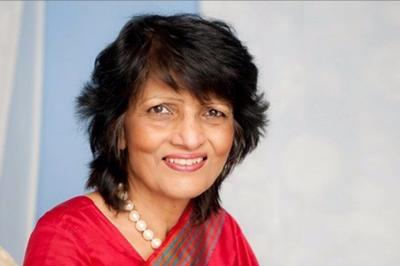
Professor Meena Upadhyaya OBE obtained her PhD from Cardiff University and completed a fellowship with the Royal College of Pathologists (RCPath).
Her research career focused on many genetic disorders, especially neurofibromatosis type I (NF1) and facioscapulohumeral muscular dystrophy. She has published over 200 papers and edited four books. She is a Fellow and Council Member for the Learned Society of Wales and the Royal College of Pathologists.
Meena is an avid advocate for promoting equality, diversity, community cohesion, and integration. She is the founder and Chair of the Ethnic Minority Welsh Women Achievement Association (EMWWAA) and the Ethnic Minority Women in Welsh Healthcare (EMWWH).
Ellie Monks
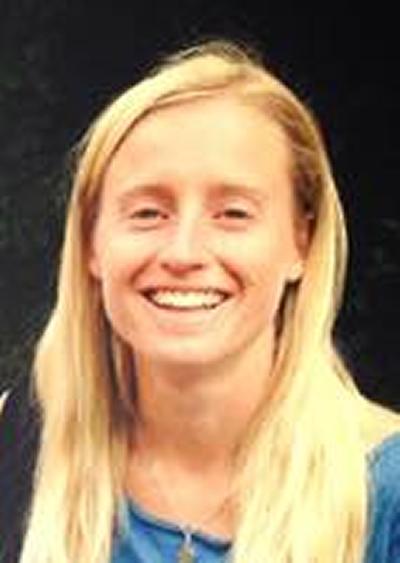
Head of Commercial, Wessex Institute Enterprise & Partnerships, University of Southampton
My background is in Natural Sciences, having graduated from the University of Cambridge in Medical and Veterinary Sciences. For the past ten years I have worked at the University of Southampton in the Wessex Institute, Faculty of Medicine. Here I have supported the delivery of the National Institute for Health Research (NIHR) Evaluation and Trials Co-ordinating Centre (NETSCC). This is a large contract the University holds with the Department of Health and Social Care, responsible for the management of over £1bn of health and social care research. In my current role as Head of Commercial, I look for opportunities to deploy our skills and expertise in health research management to other customers, as well as managing contractual and legal compliance issues with all Wessex Institute contracts.
I am also a member of the Faculty of Medicine’s Athena SWAN Self Assessment Team where I lead on the Communications Portfolio.
Dr Vrinda Nayak
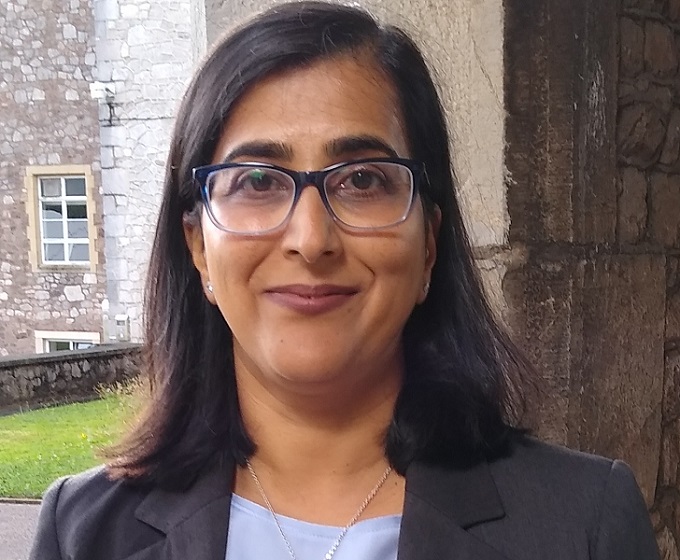
Dr Nayak is the Associate Academic Dean for Students (Racial Equality and Inclusion) for University of Exeter and an academic at the College of Medicine Health. She is part of the University`s Senior Education Leadership Team and supports the Success for All strand of the University’s Education Strategy that aims to widen the participation, eliminate degree awarding gaps and support diverse and inclusive learning environment. She provides strategic leadership through “Success and Inclusive Education Working Group” in identifying barriers to student success with a particular focus on students from disadvantaged backgrounds, ethnic minority and under-represented students at the University. Currently, she leads on implementation of a new education initiative “Transformative Education at The University of Exeter” which is aimed at embedding the principles of Inclusive Education, Racial and Social justice and Sustainability in our education. She initiated and established an effective support system at the College of Medicine and Health for ethnic minority students to raise any issues related to racism and racial discrimination and to seek timely support.
Vrinda was educated in India and has a PhD in Radiation Biology. She worked as a Postdoctoral Research Fellow at the University of Bristol during 2003 - 2010 and published her research work in Biomedical Sciences field in reputed scientific journals. She joined the University of Exeter in 2013 and since then she is involved in delivering education and student support activities across many undergraduate programmes at the College. She is an experienced educator with subject expertise in Physiology, Molecular Biology, Pharmacology, Biochemistry, Nutrition, Radiation Biology, Research Methods and Evidence Based Practice. She also provides research project supervision for students on Masters in Clinical Education programme.
Dr Musarrat Maisha Reza
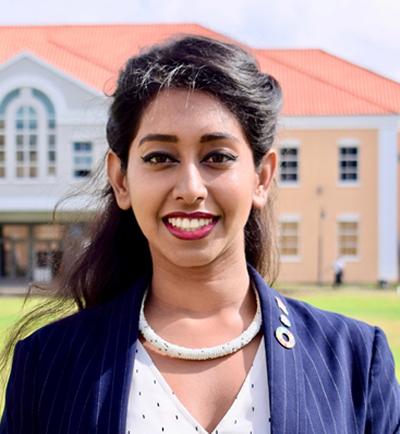
Dr Musarrat Maisha Reza is a lecturer in Biomedical Sciences and the Race Equality Resource Officer at the College of Medicine and Health, University of Exeter. She received her PhD from Nanyang Technological University, Singapore in 2017. In her academic leadership journey, she has garnered well-rounded expertise leading BAME networks, advising strategies on boards and writing policies for new academic programmes aligned with equality, diversity and inclusion in order to facilitate BAME student retention, progression and sense of belonging. Outside academia, she remains stalwart in her advocacy for youth rights and participation in decision-making.
She has been installed by the Secretary General (Commonwealth) as the Chairperson of the Commonwealth Students’ Association, working to unify and represent the needs and aspirations of national student councils across the Commonwealth.
Appointed to the Founding Board of Trustees of the 100 Million Campaign, she advocates for a world where all young people are free, safe and educated. She has also been nominated as an ASEAN Youth Fellow, into a network of next generation leaders, who will influence and inspire youth to take the ASEAN community. Most recently (2021), Dr Reza has been appointed as a Youth Representative on the UNESCO Global Education Monitoring Report Advisory Board.
Professor Sikha Saha
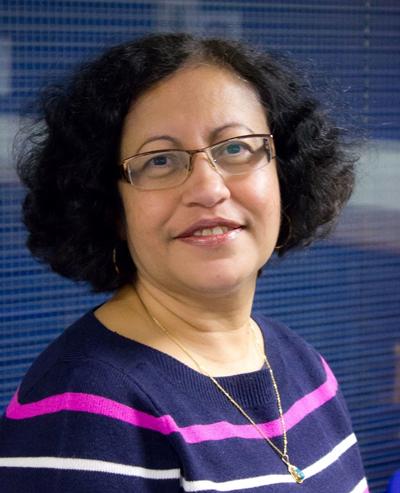
Professor Sikha Saha, Chair of Cerebrovascular Medicine, Leeds Institute of Cardiovascular and Metabolic Medicine, University of Leeds.
My research focuses on metabolic profiling, drug delivery and development of diagnostic devices for cardiovascular and cerebrovascular diseases. My work has led to two patents, one as Lead Inventor and the other as Co-Inventor. I have mentored students and staff from diverse background through my research career and also my various roles at the University of Leeds such as i) Director of Impact and Innovation, Leeds Multidisciplinary Cardiovascular Research Centre; ii) Director of International Postgraduate Medical Student; iii) Lead on Institute’s representation to the Faculty International Committee and iv) Academic Lead of MBChB modules. I am also an active member of the Leeds Eleven Network, that provides positive, supportive and active network for staff and brings together people from the Black, Asian and Minority (BAME) communities. I am currently involved in “Decolonising Leeds Medical curriculum 2021” to reduce structural educational inequalities in medicine. Nationally, I have a Leadership role in Diversity and Inclusion Task Force, Physiological Society, UK to lead on enhancing Society’s support internationally and to students and staff from the BAME communities. As an enthusiastic female individual with ethnic background, I will be able to act as role model to inspire female staff and make an effective contribution to the partnership of the School of Medicine, University of Leeds with the University of Southampton in the development and progression of AIMMS Mentoring.
Dr Rebecca Jayne Stack

Senior lecturer in Assessment at Birmingham Medical School.
I lead the Medical School’s assessment strategy, assessment design, processing of marks and feedback. My role also covers investigating differential attainment, barriers to progression, and differential postgraduate outcomes. I teach on the Psychological Medicine intercalated programme, and have a track record of teaching on public health, heath psychology, behavioural medicine and health inequalities topics. I am also a Senior Fellow of the Higher Education Academy, editor of Psychological Teaching Review and a member of the ASME Educator Development committee.
Dr Reza Zamani
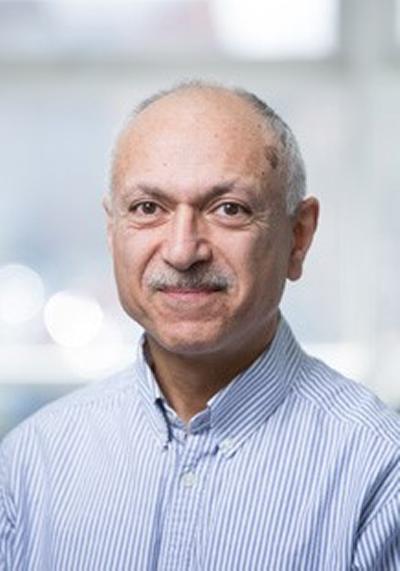
Associate Professor of Medical Science Education, University of Exeter
Reza Zamani received his BSc in Chemistry and a BSc in Psychology from the City University, London (1983) and University of East London (1988). He also studied Neuroscience at postgraduate level at the King’s College, London from which he obtained his MSc (1986). He then obtained his Doctorate degree (PhD) in neural basis of learning and memory from the Open University in 1991.
His postgraduate career consisted of a number of Research fellowships at the Universities of Manchester and Liverpool investigating neuronal intracellular calcium metabolism and beta-amyloid toxicity, before moving to the USA, where he spent 4 years at the University of Charlottesville looking at synaptic transmission and plasticity in female brain.
He then moved to the UK and carried on his research in animal models of Alzheimer’s disease at Cardiff (1998) and the role of nicotinic transmission in synaptic network plasticity at the National Institute for Medical Research, London (2000). He then moved to a tenure joined the University of Exeter as a member of academic faculty as Lecturer in Biomedical Sciences during which time he obtained his Fellowship of Higher Education Academy (FHEA), and is currently Associate Professor of Medical Sciences and Neuroscience at the University of Exeter, Devon, The UK. Since this time he has held various roles and positions such as Module lead, Academic tutor, Academic lead in Life Sciences, Programme Director and Director of Education in Medical Sciences, as well as a number of university wide roles such as Academic Lead of Equality, Diversity and Inclusion.
Dr Hannah Jennings
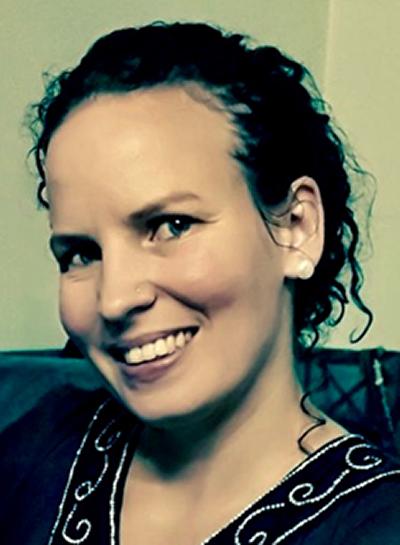
I am a Lecturer in Global Health at the University of York and the Hull York Medical School (HYMS). I am involved in a number of research projects with partners in the UK and overseas (mostly South Asia). My teaching duties include teaching a scholarship and special interest programme “Introduction to Global Health” to medical students.
I am a member of the Athena Swan Committee and the deputy chair of the Equality, Diversity and Inclusion Committee (EDIC) at HYMS. As part of my role on the EDIC I am a champion for race, religion and belief which involves chairing the Staff-Student Anti-Racism working group which is tasked with leading on issues related to race at HYMS.